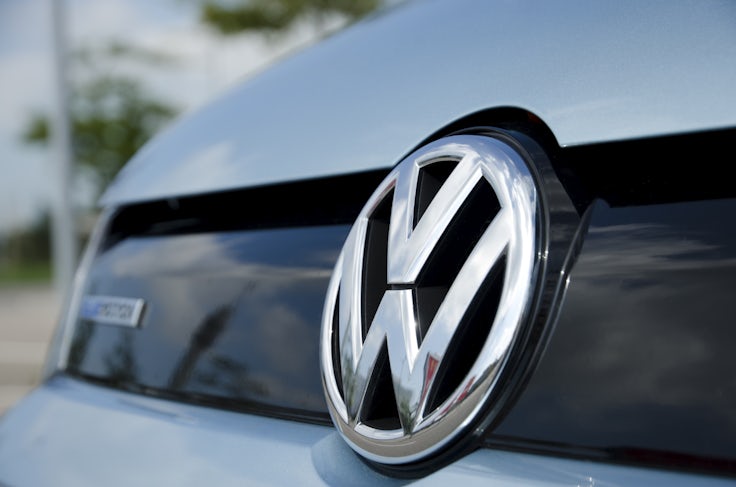VW is fighting for its corporate survival, not its reputation
Why are marketers worried about VW’s brand and the impact of its diesel engine crisis on corporate reputation? That is the least of the beleaguered German company’s worries right now.

Just because Brad Pitt is a dreamboat does not negate his status as a great actor. My favourite ever scene is the two-minute discussion from Moneyball when Pitt, playing baseball coach Billy Beane, interrogates his coaching staff on their strategy for the season ahead. Again and again the staff suggest potential recruits and Pitt berates them with the same repeated line, “What’s the problem?” “What’s the problem we have to solve?”.
Pitt’s point is that his coaches are merely proposing replacements for the players lost to higher paying competitor clubs, rather than confronting the larger, confounding challenge of beating bigger, better funded rivals.
It’s a great scene to re-watch if you are a marketer talking balls about VW and the damage that has been done to its brand since the diesel engine crisis began two weeks ago. I must have read a hundred different articles, columns and blogs wanking on about the damage to VW’s reputation, brand equity and trust. It takes a lifetime to build trust but only one bad decision to blah blah blah.
I have yet to meet a single marketer that get’s the real issue at the heart of the VW case, or to misquote the inestimable Mr Pitt, anyone who understands what the real problem is.
Money.
Not brand.
First you have the recall costs of eleven million cars needing either a software upgrade that will allow them to perform as advertised with low emissions (and incredibly crappy fuel consumption and driving performance) or a more likely fix involving a urea-based engine upgrade. That will cost about £4,000 per car. So that’s £44bn accounted for. Gulp.
Now let’s move to legal liabilities. The VW company knowingly committed fraud when it sold those 11 million “clean diesel” cars when they were no such thing. The value and resale of those cars has now been significantly diminished and customers will expect compensation. Over a hundred class action law suits have already been filed and many are aiming at the £3,000 premium that customers paid for the clean diesel technology in their new car. The liabilities also stretch to VW dealerships that are looking at a bleak future and compensation from VW as their route to survival. Let’s assume a global liability of £25bn.
Next up are the pollution liabilities that VW face. Houston, Texas was the first city to sue VW for $100m (£66m) citing the pollution in and around its metro area. Other cities will follow suit and so they should. VW cars have been pumping out up to forty times more Nitrogen Oxide (NOx) than they were supposed to. That equates to around 200,000 tonnes of the stuff each year or the equivalent of 20 coal-fired power stations driving up and down the motorway. NOx is nasty stuff and, if we use the data from the Environmental Protection Agency (EPA) , could potentially leave VW open to claims it contributed to between 74 and 404 premature deaths each year. Let’s agree on 200 and multiply it by five for each of the years these fraudulent, over-polluting cars operated. BP paid out around £5m per fatality caused by the Gulf of Mexico disaster, based on 1000 fatalities VW could be looking at a bill for £5bn.
Next we have all the fines that VW are liable for. The US environmental protection agency has already announced that VW could be penalised by up to $18bn (£12bn) for fraudulently cheating their emission tests. The European Union and major Asian countries are likely to follow suit and that’s just the fines for emissions testing, don’t forget the potential penalties for false advertising and fraudulent corporate practice. Expect global fines totalling £25bn.
I make that £100bn. The VW group is currently worth £50 billion. They don’t have time to worry about brand or reputation, that is small potatoes. This is about corporate survival or, as their new Chairman Hans Dieter Poetsch describes it, avoiding “an existence–threatening crisis for the company”.
Of course my numbers are very, very loose. But you get the idea. And I’m not even going to mention the enormous organisational costs involved in handling all this legislative activity for the next five years or the opportunity costs that VW will experience as money that should have been channeled into new product development is diverted to cover the costs of the various international court cases.
Yes, VW’s brand and reputation are important. Yes, they have been severely damaged by the diesel scandal. But that is not the problem. The problem is staying alive long enough to be able to worry about reputation five years from now.







